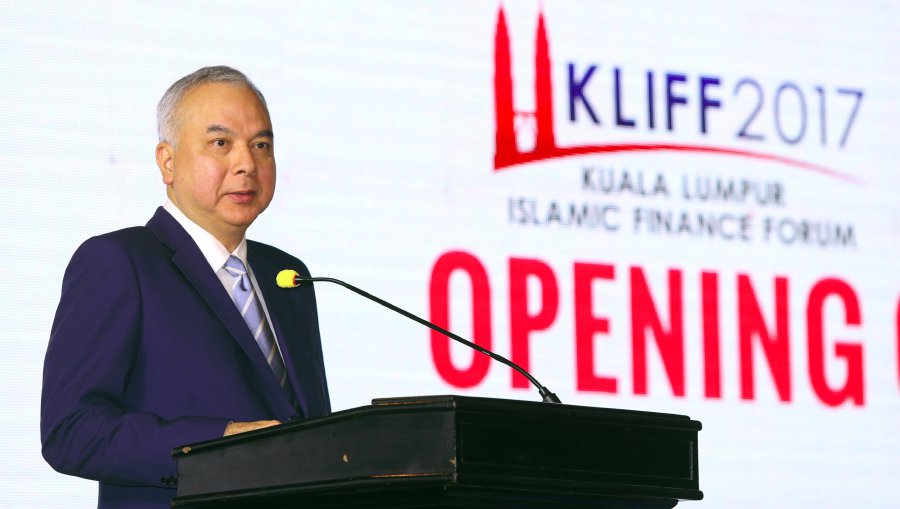KUALA LUMPUR: Islamic finance has come far and achieved so much but there are at least six challenges that they are facing now, said Sultan of Perak, Sultan Nazrin Muizzuddin Shah.
Sultan Nazrin said support from shareholders at the initial stage of the industry’s development and the relentless efforts of regulators had been critical.
“I believe that the demand for Islamic finance has been driven by the intrinsic appeal of the Shariah features of Islamic financial instruments and products.
“This has enabled the industry to withstand the multitude of challenges it has faced, including slower global economic growth rates and trade flows, the high financial volatility and systemic risks of conventional financing,” he said at the opening ceremony of the 14th Kuala Lumpur Islamic Finance Forum (KLIFF) 2017 here today.
Sultan Nazrin said Islamic finance managed to cope better than its secular counterpart in terms of growth, albeit from a smaller base.
“It is imperative that efforts persist in developing and innovating the Islamic financial system so that it becomes an even more competitive alternative to the mainstream financial system than it already is. Insyallah, one day it may even be the preferred alternative,” he said, adding that there should be no room for complacency.
He said challenges at present include lower oil prices – particularly for countries dependent on oil-revenues – and changes in the global regulatory and supervisory framework.
“Global Islamic banking assets today have grown to around US$1.5 trillion. The number of countries in which Islamic banking is present has increased to 18. In 12 of these 18 countries, the Islamic banking system is considered to be of systemic importance.
“This is very encouraging but still a relatively small number. The opportunity for the industry to further extend its reach to other non-OIC members must be considered to be very good,” he added.
Addressing the six challenges faced by the industry, Sultan Nazrin said: “First, the Islamic banking industry needs to improve profitability and attract more investment as it ventures into new markets.
“Second; the industry needs to maintain high standards of loan quality and corporate governance.
“Third; Islamic capital markets need to grow at a faster pace so that there is not an undue reliance on Islamic banking alone.
“Fourth; the negative trends of corporate issuances of sukuk need to be reversed.
“Fifth; the Islamic equity market also needs to be more comprehensively developed and sixth; takaful insurance needs to be grown to exploit the huge opportunities that are available.”
Sultan Nazrin reminded that Islamic finance community must not be swayed.
“We need to constantly remind ourselves that because Islamic finance must deal with commodities – both soft and hard - or services or investment activity, it delivers ‘real value for the real economy and is of benefit to real people’.
“Others may have deviated from the objective of doing good but we in the Islamic finance community must not be similarly swayed,” he added.
Sultan Nazrin also encouraged those gathered at the forum to envision the role of Islamic finance going forward, taking into account the challenges facing the industry and to crystallise ideas on how to deliver real value for the real economy and benefit real people into actionable blueprints covering all aspects of finance.










